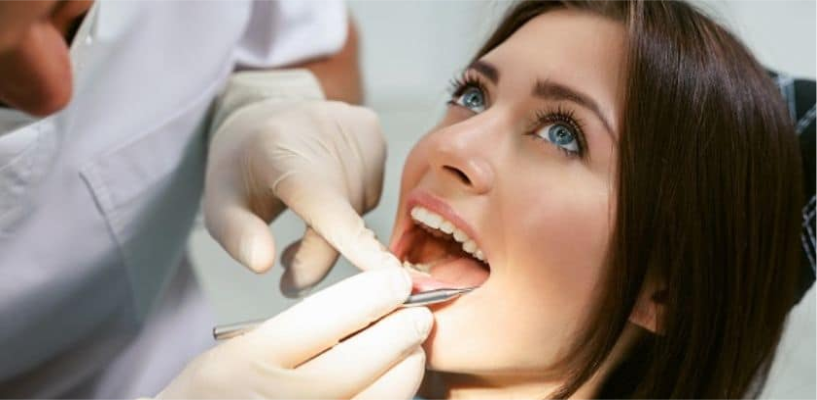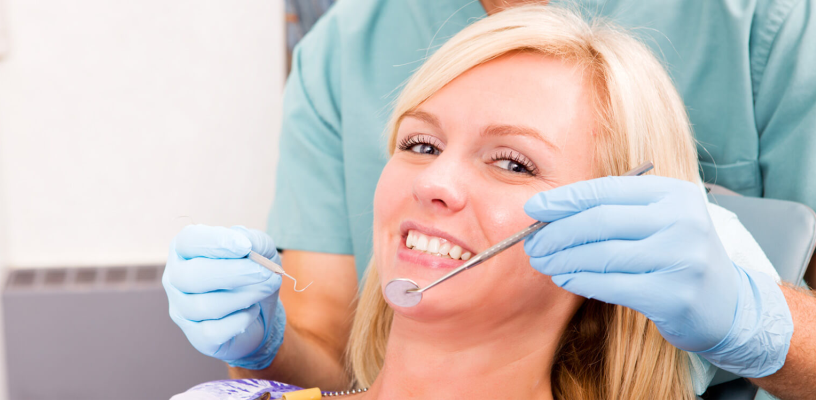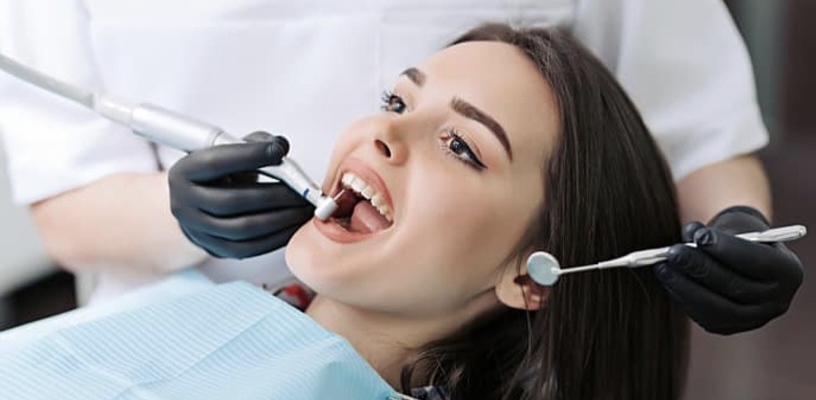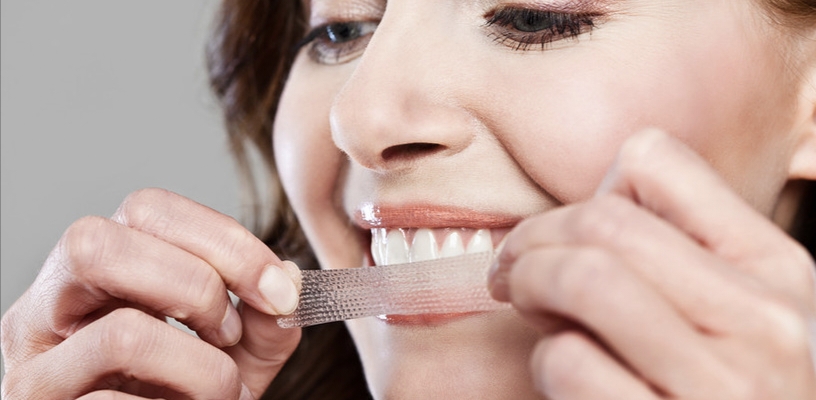
How Much Does Dental Bonding Cost?
The average cost of dental bonding may range between $100 and $500 for every tooth. However, the price may vary depending on factors such as the complexity of the procedure, the number of teeth that are being treated, the location, and the experience of the dentist.
The patient may also schedule a consultation with a cosmetic dentist who can give a better idea of whether dental bonding will be a suitable option for you and about payment plans and discounts.
Introduction to dental bonding
Dental bonding refers to a cosmetic dentistry procedure that makes use of tooth-colored resin that helps to repair and enhance the teeth appearance. It is used to fix minor damage such as gaps between teeth, chips, cracks, and discoloration. Dental bonding may also be used to close the gaps between the teeth and to lengthen the teeth.
-
The Importance of understanding cost for dental bonding
It is important to understand the cost of dental bonding as the overall expenses may vary depending on various factors that include the following:
-
Complexity: The cost of dental bonding may be higher if the bonding procedure is more complicated, such as if it includes rebuilding teeth, filling gaps, and repairing cracks.
-
Number of teeth: The cost may differ based on the number of teeth you want to get bonded.
-
Materials: The materials that are used for dental bonding may create a difference in the cost factor.
-
Dentist's expertise: The expertise of the dentist may make the difference in the dental bonding cost.
-
Location: The location may make the difference in the cost as in urban cities cost may be higher in comparison to other cities.
Dental bonding is a more affordable dental option in comparison to other cosmetic dental procedures such as getting dental veneers or crowns on front teeth and other teeth.
Comparative analysis with other cosmetic procedures (Veneers, crowns)
-
Dental Bonding vs. Veneers:
Let’s take a look at the comparative analysis of dental bonding with veneers.
-
Cost: If we compare the cost, then bonding is often less expensive usually $100 to $600 per tooth in comparison to cost of veneers which tends to be nearly $250 to $2,500 for every tooth.
-
Durability: Bonding will last for at least 3 to 10 years, while porcelain veneers last for 10 to 15 years with proper care, making it more durable.
-
Aesthetics: Bonding will cause discoloration easily with time, whereas veneers provide a more stain-resistant and natural appearance.
-
Procedure Time: Bonding may be done in one visit, whereas veneers take multiple visits.
-
Dental Bonding vs. Crowns:
Let’s take a look at the comparative analysis of dental bonding with crowns.
-
Cost: Crowns are usually more expensive in comparison to bonding nearly $800 to $2,500. However, the cost may differ depending on the material used.
-
Durability: If we talk in terms of durability, then crowns are more durable as it last for 10 to 15 years in comparison to bonding.
-
Functionality: Generally, crowns provide complete coverage and are an ideal option for damaged teeth as they protect the teeth, whereas bonding does not as it is cosmetic dentistry.
-
Aesthetics: Bonding does not provide a natural appearance whereas dental crowns provide a natural look and are less likely to stain.
Dental bonding is an affordable and quick solution if a patient is looking for minor cosmetic problems. However, it is less durable and does not provide aesthetic appeal as compared to crowns and veneers. You must always consult a dentist to know which dental treatment is a good option for your appearance.
Contributing factors to the cost of dental bonding
There may be various factors that may impact the cost of dental bonding. If you understand these, then it may help you to plan within your budget and take informed decisions.
1. Geographical Location
The overall cost of dental services may differ based on the region due to the difference in overhead expenses, cost of living, and demand for cosmetic dentistry in the local area. Urban areas have higher dental costs as they have a higher cost of living whereas rural areas may not.
2. Complexity and Type of Required Procedure
If you are looking for minor dental issues such as minor discoloration or chips, then they will cost less in comparison to extensive work that includes filling large gaps and reshaping. Further, the positioning of the teeth also may change the cost of bonding. The front teeth bonding requires more precision in comparison to the back teeth. Complex cases may cost more visits than less complicated cases.
3. Experience and Reputation of the Dentist
Dentists who have advanced training and have a greater reputation in aesthetics and cosmetic dentistry may charge premium costs than others. The expertise and quality of results of the dentists may also increase the overall fees.
4. The Impact of Insurance and Financing Options
Dental bonding may or may not be covered by insurance. If the bonding involves repairing a broken tooth or filling a cavity, then insurance may be available. Some financing options exist for dental procedures provided by dental practices. By utilizing payment plans and third-party financing companies the overall cost may become affordable.
The benefits of dental bonding beyond costs
Dental bonding may provide various benefits that include the following:
1. Aesthetic Advantages
-
Natural Appearance: Bonding provides natural appearance by using composite resin, as it looks similar to the color of surrounding teeth.
-
Versatility: Bonding can help to resolve various dental issues such as discoloration, gaps, chips, cracks, and uneven teeth. All these may enhance the aesthetics of your smile.
-
Quick Results: Provides immediate improvement in the appearance of teeth, making it a popular choice for those seeking rapid cosmetic enhancement.
2. Speed and Convenience of Procedure
-
Single Visit: Dental bonding is a time-saving dental option as it can be done in one visit in comparison to crowns and veneers that may require multiple dental visits.
-
No Lab Work: Dental bonding requires no laboratory work as it is directly applied to teeth, which speeds up the entire procedure.
-
Immediate Results: Patients may see the result immediately as it is completed in one visit, and they may go with a smile on the same day.
3. Minimal Invasiveness Compared to Alternatives
-
Enamel Preservation: In dental bonding, there is no or minimum removal of enamel, unlike the crowns and veneers.
-
Reversibility: Bonding can easily be revered as it is less invasive. It happens as minimal removal of enamel is done.
-
No Anesthesia Required: Bonding does not require anesthesia making the procedure less painful and does not involve major alteration of the tooth structure.
Care and maintenance for longer-lasting results
It is important to maintain proper care to increase the lifespan of dental bonding. Some tips are discussed as follows:
1. Tips on Extending the Lifespan of Dental Bonding
-
Avoid Hard Foods: After dental bonding, you must avoid biting hard objects such as pens, fingernails, and ice, as it may cause cracks and chip the bonded material.
-
Minimize Staining Foods and Drinks: Try to limit the use of staining substances such as red wine, tobacco, and coffee. It is because the composite resin used in dental bonding is not resistant to staining and may cause staining easily.
-
Use a Mouthguard: Some people have a habit of grinding their teeth in night; they must use a mouthguard that will help protect their bonded teeth from unnecessary pressure.
-
Regular Dental Check-ups: After dental bonding, you need to ensure that you visit your dentist in regular intervals. It will help you to address any dental issues within time.
2. Recommended Practices for Oral Hygiene Post-Bonding
-
Gentle Brushing: Try to brush your teeth twice a day by using non-abrasive toothpaste and soft-bristled toothbrush. It will not dull the bonded surface.
-
Floss Daily: By flossing daily, the risk of plaque and gum disease will reduce and will also maintain oral hygiene.
-
Rinse with Mouthwash: An antibacterial mouthwash will enhance the oral health and will minimize the risk of cavities growing in the bonded area.
By adopting these best practices and care, the lifespan of dental bonding will increase and will maintain a beautiful smile.
Encouragement to consult with a dentist for personalized estimates
It is important to consult a dentist as it will help you to get a better idea of the cost of dental bonding and other suitable options for your dental problems. A dentist will provide you with good advice on how to maintain your smile and enhance your oral health. When you discuss your issues with your dentist, it will help you to make better decisions.





